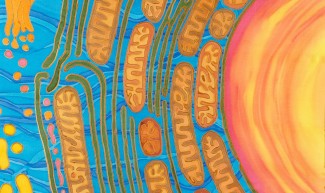Patients with pure alexia completely or partially lose the ability to read. Laurent Cohen, Paris Brain Institute neurologist and researcher, and his team, in collaboration with a London team, wanted to understand the brain mechanism at stake in this pathology following stroke. Through functional MRI studies, researchers highlighted the possibility of a nerve connection reorganisation to compensate for the loss of functions related to brain injuries.
After stroke affecting the underside of the left temporal lobe, some patients become unable to read, while all their other abilities remain intact. Thus, they can speak, understand, and even write normally. This situation has been known since the XIXth century as pure alexia. Through anatomical and functional brain imaging development, we known that pure alexia is the result of the destruction or disconnection of a well-defined cortical area, specialised in the recognition of written letters. But if the causes of alexia are fairly well known, it is still not clear how patients can gradually recover suitable reading abilities after their accident.
Laurent Cohen, Paris Brain Institute neurologist and researcher, and his team, in collaboration with a London team, have studied alexia recovery mechanisms in an exceptional patient. He was himself an eye care specialised neuroscientist. His initially very severe alexia gradually improved over a two-year period. During this same period, he participated in 9 anatomical and functional MRI brain imaging sessions, allowing to study the evolution of reading brain circuits over time.
Gradual (and incomplete) improvement of reading was accompanied by changes in visual cortex areas unharmed in the accident, either in the back of the vascular lesion, or in the right hemisphere, which was intact. These areas have observed an increase in their activity, not only during reading but also during the perception of all kinds of images. In addition, exclusively during reading, communication of these areas with cerebral language areas has gradually increased.
These results reveal that an alternative pathway can be set up after the destruction of the visual area specialised in reading. However, the patient did not return to normal reading. Adult readers identify words at a glance, simultaneously recognising all their letters. The patient, as it is usually the case in pure alexia, continues to decipher words "letter by letter", although more rapidly than immediately after his accident.
Sources
https://www.sciencedirect.com/science/article/abs/pii/S0028393216302536
Laurent Cohen, Stanislas Dehaene, Samantha McCormick, Szonya Durant, Johannes M. Zanker. Neuropsychologia, 2016.







